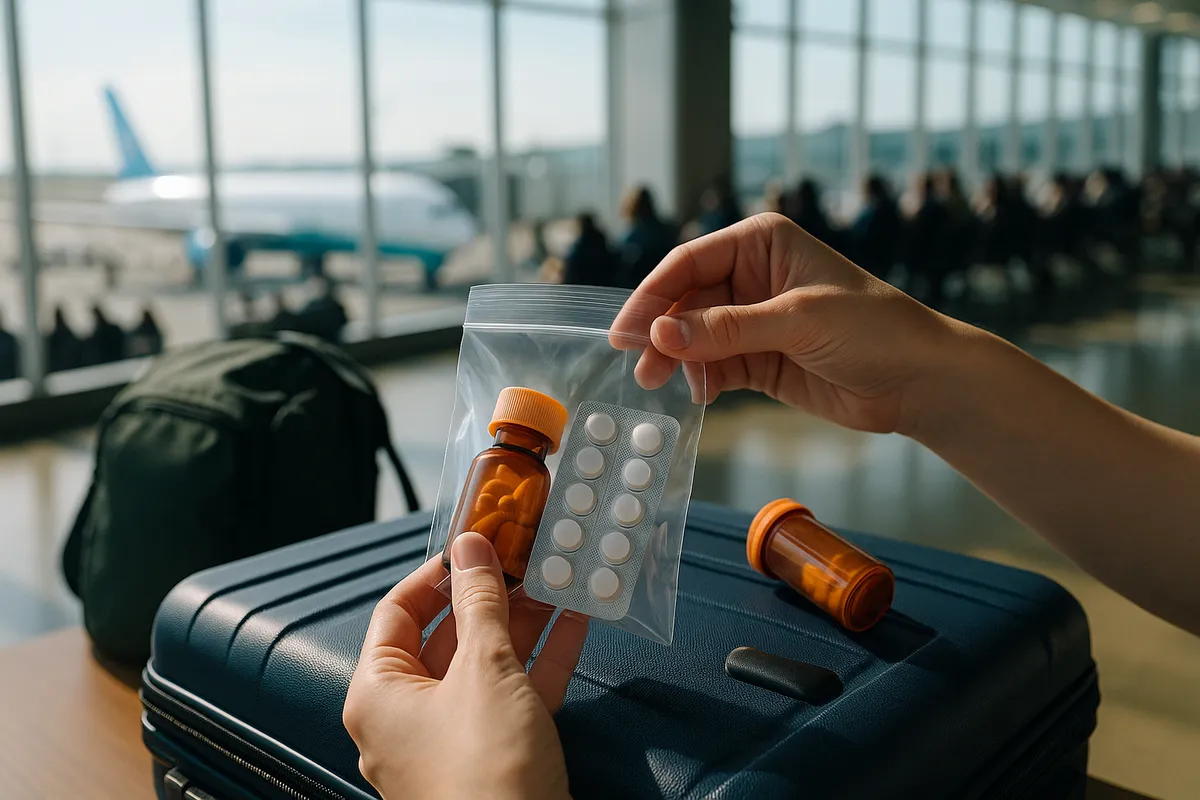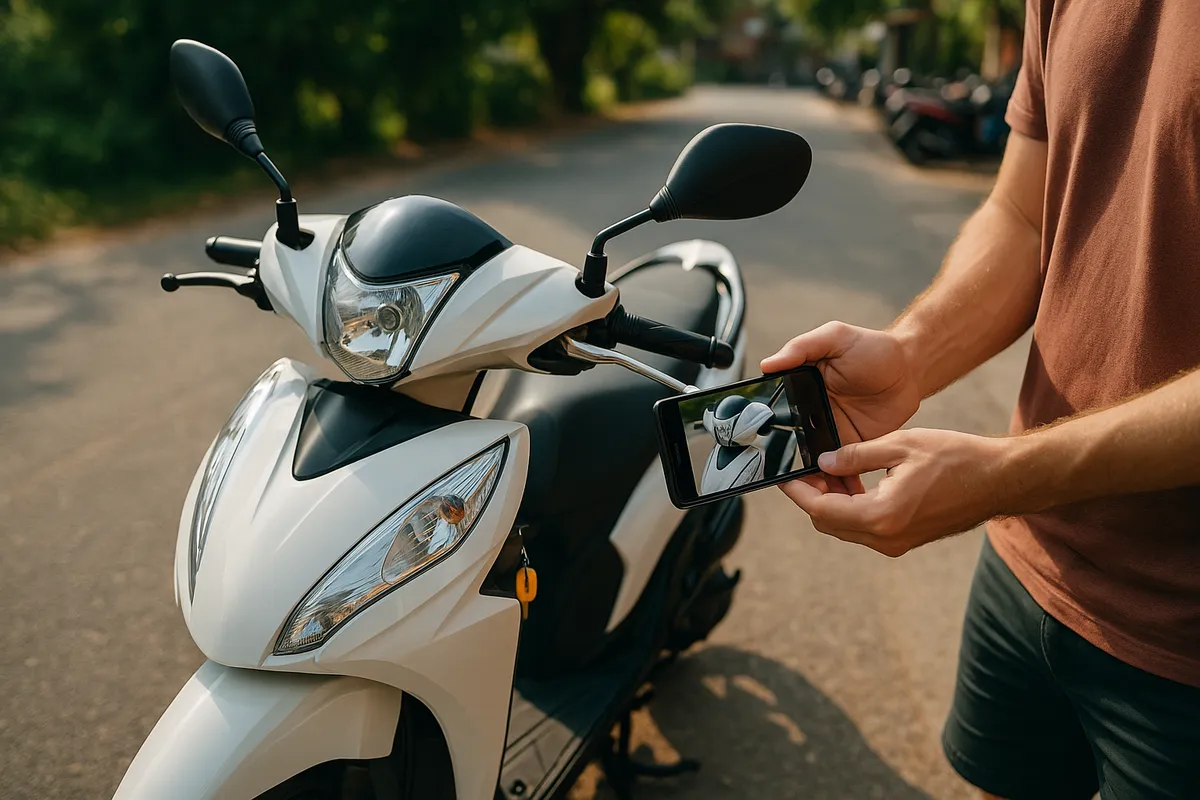Carry your medicine properly to avoid being unfairly fined at the airport
- Monday, May 12, 2025, 13:26 (GMT+7)
Carry your medicine properly to avoid being unfairly fined at the airport
When a passenger is stopped at airport security because of a few cold tablets or a familiar tube of ointment, the recurring question is this: how can one bring medicine on a flight legally, without turning it into a hassle? The answer does not lie in a dry line of regulation but rather in the accumulated experience of thousands of travelers and the real-life practices of airports and airlines today.
One of the most common misconceptions is the belief that prescription drugs are always allowed on board without explanation. In reality, even with a valid prescription, if the medication is stored in an unlabelled container or a zip bag without a clear origin, passengers can still be flagged for inspection. This happens frequently at major international airports like Changi or Incheon, where security checks are thorough but systematic.
Carrying medicine safely and legally on a plane is not only about having a prescription. It is also about how the medicine is classified, packaged, and presented. Medication should remain in its original packaging, showing the drug name, dosage, and manufacturer clearly. If prescribed, travelers should carry the original prescription or a signed copy, especially for injectable medications or those containing controlled substances like codeine, morphine, or sedatives. Certain countries such as Japan, Australia, the UAE, and Singapore maintain strict lists of prohibited medications, even for personal use. There have been cases where Vietnamese travelers were held for bringing cold medicine with pseudoephedrine into Tokyo, despite it being completely legal in Vietnam.
To avoid unnecessary trouble, travelers should carefully research the list of restricted or controlled substances in their destination country. Most civil aviation authorities publish this information on their official websites. However, a lesser-known tip is to email the local embassy directly for case-specific guidance. Some travelers have reported receiving highly detailed responses within days, sometimes even with declaration forms attached for personal medication.
For liquid medicines like syrup, eye drops, or insulin injections, cabin regulations for liquids must be followed. Under international air travel norms, liquids must be stored in containers no larger than 100ml, placed in a transparent zip bag with a total volume not exceeding 1 liter. However, if the medication is medically necessary, passengers may be exempt from this limit as long as they carry supporting medical documents and declare them at security. In one real case at Charles de Gaulle Airport, a Vietnamese traveler was required to sign an explanation form for carrying a 150ml bottle of herbal cough medicine without original labeling, despite claiming it was a traditional family remedy.
It is especially important to divide your medication into two parts: one in your carry-on luggage and one in your checked baggage. This minimizes risk in case of loss or unexpected inspection. Medicines needed during the flight such as asthma inhalers, gastric treatments, anti-epileptics, or insulin should be kept in your personal bag and be easily accessible. Use a specialized pill organizer to sort medicine by dosage and timing. Not only is this convenient, but it also demonstrates personal use, helping to avoid suspicion of intent to distribute.
A frequent mistake is traveling with unlabeled tablets in loose strips, zip bags, or unmarked containers. In countries like South Korea or New Zealand, this may raise red flags and lead to lengthy inspections. One traveler flying from Hanoi to Auckland was held for over an hour for carrying vitamins in a plain plastic jar. Though it was eventually confirmed to be multivitamins, the passenger had to submit a verification statement and wait for airport medical staff to inspect it before being allowed to proceed.
With herbal or traditional medicine, even more caution is required. Airports in the US, Canada, and Europe often use biometric scanners to detect herbal components or powders. If these are unlabelled or uncertified, they may be suspected of containing banned substances. A real incident involved a Vietnamese traveler fined in Frankfurt for carrying ground turmeric sent by family. With no label, no packaging, and no proof of origin, it became circumstantial evidence of potentially hazardous powder.
To reduce risk, it is advisable to prioritize tablets or soft gels from reputable manufacturers with proper labeling. For homemade remedies, traditional herbs, or powders, bring only small amounts, label them clearly in English, and include medical certification if possible. Avoid packing them in zip bags or hand-wrapped formats unless absolutely necessary.
One lesser-known but very effective tip is to prepare a detailed list of all medications in English. This list should include the name, purpose, dosage, and the condition they are meant to treat. Ideally, print two copies one for your carry-on, and one taped to the medicine bag in your checked luggage. If inspected, simply presenting this list along with your passport can make the process much quicker and smoother.
For long-haul flights, especially those transiting through countries like Turkey, Qatar, or the UAE, be extra vigilant. Each airport has its own medication screening protocol. Some travelers have had to discard entire prescriptions, such as stomach medication, when passing through Doha because they lacked an English prescription. These cases are not rare and are often overlooked during trip planning.
It is also worth noting that although bringing medicine on board is permitted, it is not recommended to take strong medication mid-flight without clear medical advice. Cabin pressure changes, colder temperatures, and thinner air can alter how the body reacts. A strong sleeping pill or powerful painkiller might cause dizziness, blackouts, or behavioral disturbances, potentially triggering onboard emergencies.
Bringing medicine on a flight might seem like a minor task, but with the wrong assumptions, it can quickly become a major headache. The most important thing is not just following the rules, but presenting your case clearly, respectfully, and logically when asked. Sometimes, a skeptical glance from a security officer can be defused by a smile and a neatly organized medicine list.
Smart travel is not just about finding the best accommodations, hunting cheap tickets, or optimizing your itinerary. It also lies in the careful attention to seemingly trivial details, like how your medicine is packed. A cold pill at home might be no big deal, but on an international flight, without the right preparation, it could be the very thing that delays your entire journey.

 CHECKIN.VN
CHECKIN.VN








Share on